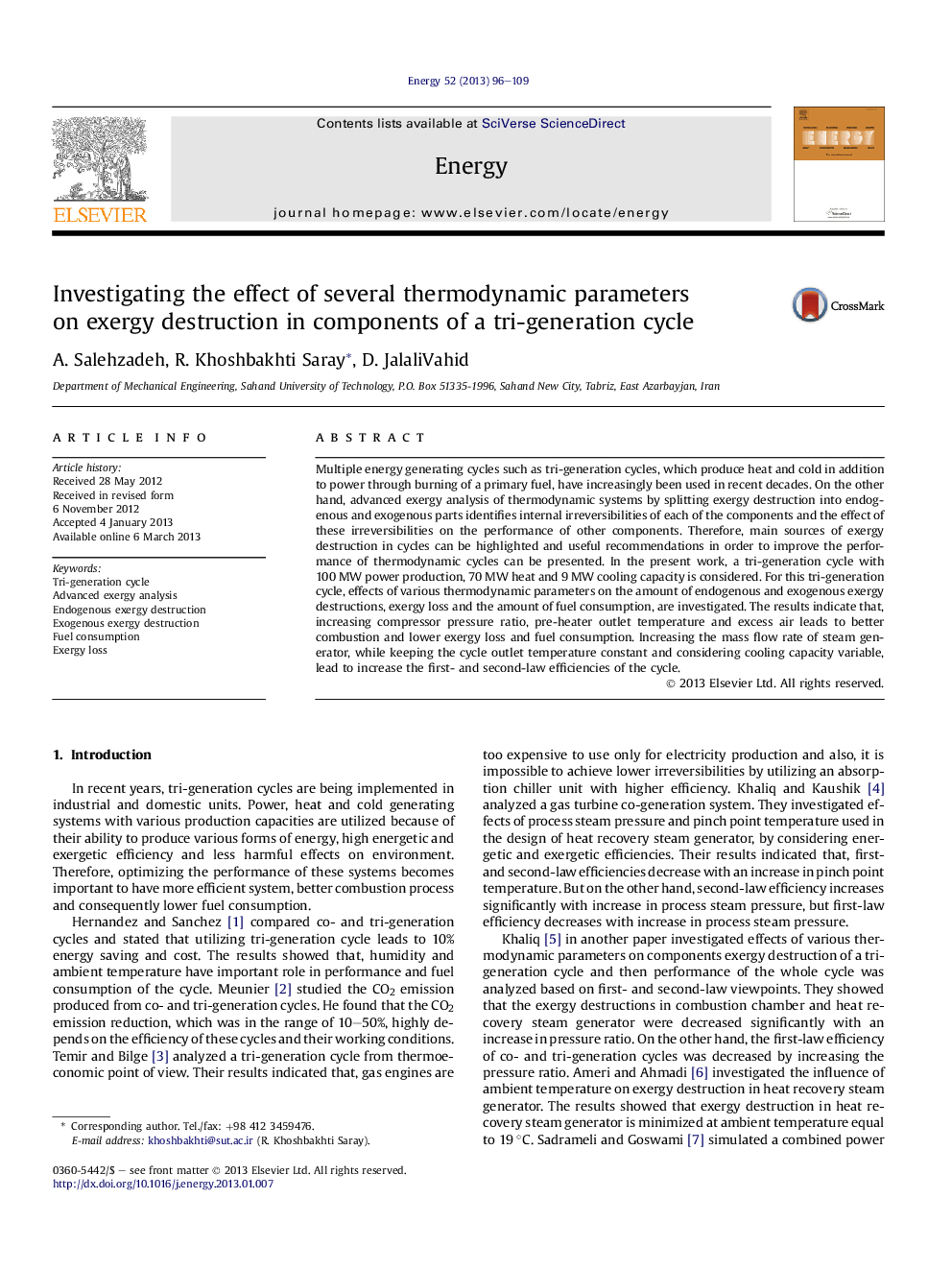| کد مقاله | کد نشریه | سال انتشار | مقاله انگلیسی | نسخه تمام متن |
|---|---|---|---|---|
| 1732831 | 1521494 | 2013 | 14 صفحه PDF | دانلود رایگان |

Multiple energy generating cycles such as tri-generation cycles, which produce heat and cold in addition to power through burning of a primary fuel, have increasingly been used in recent decades. On the other hand, advanced exergy analysis of thermodynamic systems by splitting exergy destruction into endogenous and exogenous parts identifies internal irreversibilities of each of the components and the effect of these irreversibilities on the performance of other components. Therefore, main sources of exergy destruction in cycles can be highlighted and useful recommendations in order to improve the performance of thermodynamic cycles can be presented. In the present work, a tri-generation cycle with 100 MW power production, 70 MW heat and 9 MW cooling capacity is considered. For this tri-generation cycle, effects of various thermodynamic parameters on the amount of endogenous and exogenous exergy destructions, exergy loss and the amount of fuel consumption, are investigated. The results indicate that, increasing compressor pressure ratio, pre-heater outlet temperature and excess air leads to better combustion and lower exergy loss and fuel consumption. Increasing the mass flow rate of steam generator, while keeping the cycle outlet temperature constant and considering cooling capacity variable, lead to increase the first- and second-law efficiencies of the cycle.
► Advanced exergy analysis is used to analyze a tri-generation cycle.
► Increasing compressor pressure ratio leads to lower exergy loss and fuel consumption.
► Exergy loss is lowered by increasing pre-heater outlet temperature.
► Increasing the air flow rate of the cycle improves the performance of the cycle.
Journal: Energy - Volume 52, 1 April 2013, Pages 96–109